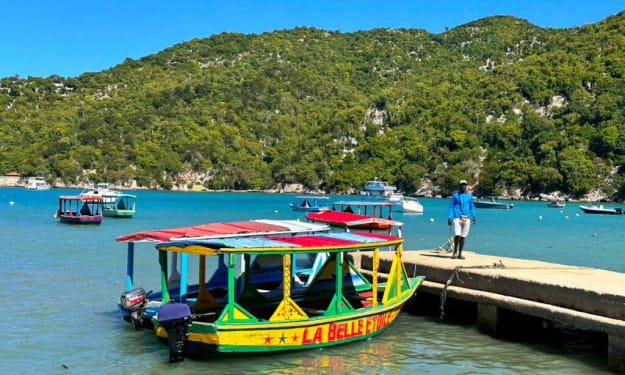Content warning
This story may contain sensitive material or discuss topics that some readers may find distressing. Reader discretion is advised. The views and opinions expressed in this story are those of the author and do not necessarily reflect the official policy or position of Vocal.

The natural environment is a complex and intricate web of living and non-living components that coexist and interact to create a harmonious and sustainable ecosystem. It encompasses everything from the air we breathe to the plants, animals, and landscapes that surround us. The natural environment plays a crucial role in sustaining life on Earth, providing essential resources, regulating climate, and offering a myriad of benefits to human well-being. In this essay, we will explore the importance and beauty of the natural environment, its current challenges, and the need for conservation efforts.
The natural environment is a source of remarkable beauty and inspiration. From the majestic mountains to the serene forests and pristine beaches, the Earth offers a diverse range of landscapes that captivate and enchant us. The natural environment is a sanctuary that allows us to escape the hectic pace of modern life and reconnect with nature. It provides solace and rejuvenation, fostering a sense of peace and tranquility that is essential for our mental and emotional well-being.
Beyond its aesthetic appeal, the natural environment is vital for the survival of all living organisms. It serves as a habitat for countless plant and animal species, each playing a unique role in the delicate balance of the ecosystem. Biodiversity, the variety of life forms found on Earth, is crucial for ecosystem stability and resilience. The natural environment provides food, shelter, and breeding grounds for wildlife, supporting the intricate food chains and webs that sustain life.
Moreover, the natural environment offers a wealth of resources that are essential for human survival and progress. It provides us with clean air to breathe, clean water to drink, and fertile soil for agriculture. The Earth's diverse ecosystems also act as natural filters, purifying water and air, and mitigating the impact of pollutants. Natural resources such as timber, minerals, and energy sources are extracted from the environment and used for various purposes, fueling economic growth and development.
However, the natural environment is currently facing numerous challenges that threaten its integrity and stability. Human activities, including deforestation, pollution, overfishing, and the emission of greenhouse gases, have resulted in widespread environmental degradation. Climate change, driven primarily by human-induced factors, is altering ecosystems, leading to rising temperatures, sea-level rise, and extreme weather events. Loss of biodiversity, habitat destruction, and the extinction of species are also significant concerns.
The consequences of neglecting the natural environment are far-reaching. Climate change disrupts weather patterns, leading to droughts, floods, and severe storms that have devastating effects on human communities and ecosystems. Pollution contaminates water bodies, affecting aquatic life and endangering human health. Deforestation not only results in the loss of valuable habitats but also contributes to carbon emissions and exacerbates climate change. The depletion of natural resources threatens future generations' ability to meet their needs and hinders sustainable development.
Given the critical importance of the natural environment, conservation efforts have become imperative. Governments, organizations, and individuals worldwide are recognizing the need to protect and preserve our natural resources. Conservation involves adopting sustainable practices, reducing carbon emissions, promoting renewable energy sources, and implementing policies that protect wildlife and ecosystems. Protected areas, such as national parks and nature reserves, play a vital role in safeguarding biodiversity and providing habitats for threatened species.
Education and awareness are also essential components of conservation. By increasing understanding and appreciation of the natural environment, we can inspire individuals to take action and make environmentally conscious choices in their daily lives. Environmental education empowers people to become responsible stewards of the Earth and advocates for sustainable practices and policies.
Furthermore, innovative solutions and technologies can contribute to the conservation of the natural environment. Renewable energy sources, such as solar and wind power, offer cleaner alternatives to fossil fuels, reducing carbon emissions and mitigating climate change. Sustainable agriculture practices, such as organic farming and agroforestry, promote biodiversity conservation and





Comments
There are no comments for this story
Be the first to respond and start the conversation.